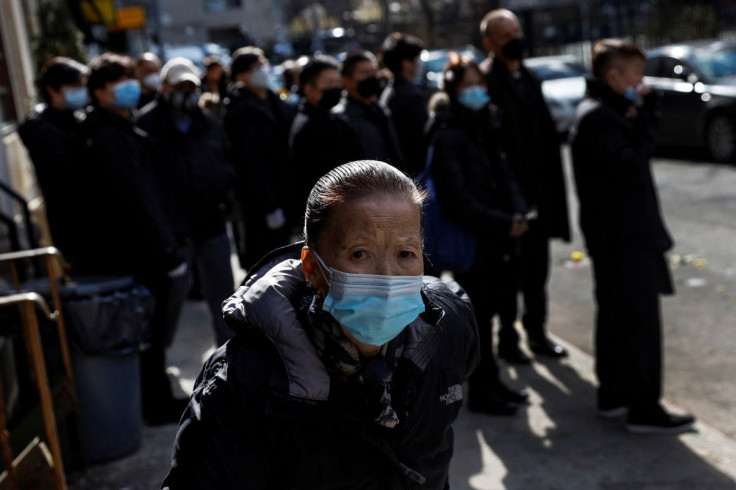Hospitals Prepare For Uninsured COVID-19 Patients As Funding Disappears
As federal funding for COVID-19 runs out, hospitals across the U.S. are prepping for an influx of uninsured people coming in with the virus, The Washington Post reports.
The Health Resources and Services Administration (HRSA) announced last week that, “On March 22, 2022, at 11:59 p.m. ET, the HRSA COVID-19 Uninsured Program stopped accepting claims for testing and treatment due to a lack of sufficient funds.”
Testing and treatment for those without insurance are weighing on the system, and it will weigh further as another deadline approaches in the next month.
“On April 5, 2022 at 11:59 p.m. ET, the HRSA COVID-19 Uninsured Program and COVID-19 Coverage Assistance Fund will also stop accepting vaccination claims due to a lack of sufficient funds,” the HRSA site reads.
The White House announced last week that the government reduced the supply of monoclonal antibody treatments to states by 35% as Congress failed to pass additional funding. Secretary of Health and Human Services Xavier Becerra cited “the consequences of diminishing supply or the resources to plan ahead and invest in future needs” as a reason for the reduction in supply.
As federal and state lawmakers see an end to the COVID-19 pandemic, regardless of how cases fluctuate over time or what new variants may emerge, it is unclear whether there will be a return of testing, treatment and vaccination coverage for the uninsured.
About 28 million people are uninsured in the U.S. and around 700 people are still dying from COVID-19 every day across the country. Without the government covering treatments, costs could go up significantly, a doctor warned NPR.
“If we aren't doing surveillance — either because we're hoping for an end to the pandemic or because the money runs out and health departments and other institutions can't afford to do it — then we are going to be caught unawares next time,” Crystal Watson, a senior scholar at the Johns Hopkins Center for Health Security, told NPR.
Doctors have warned for months that despite a decrease in COVID-19 cases and deaths, the pandemic is not close to an endemic phase yet.
The loss of these resources and supplies will place an excess burden on hospitals that are still treating COVID-19 patients and are in some areas burdened by the number of cases, but the effects will be most felt by the uninsured as costs accumulate over time.
Earlier this month, the White House warned of what could happen if Congress did not approve funding, including the effects on those who are uninsured, saying, the lack of funding forces “providers to either absorb the cost or turn away people who are uninsured, increasing the disparity in access to critically needed healthcare and putting additional burdens on safety net providers.”

© Copyright IBTimes 2024. All rights reserved.





















